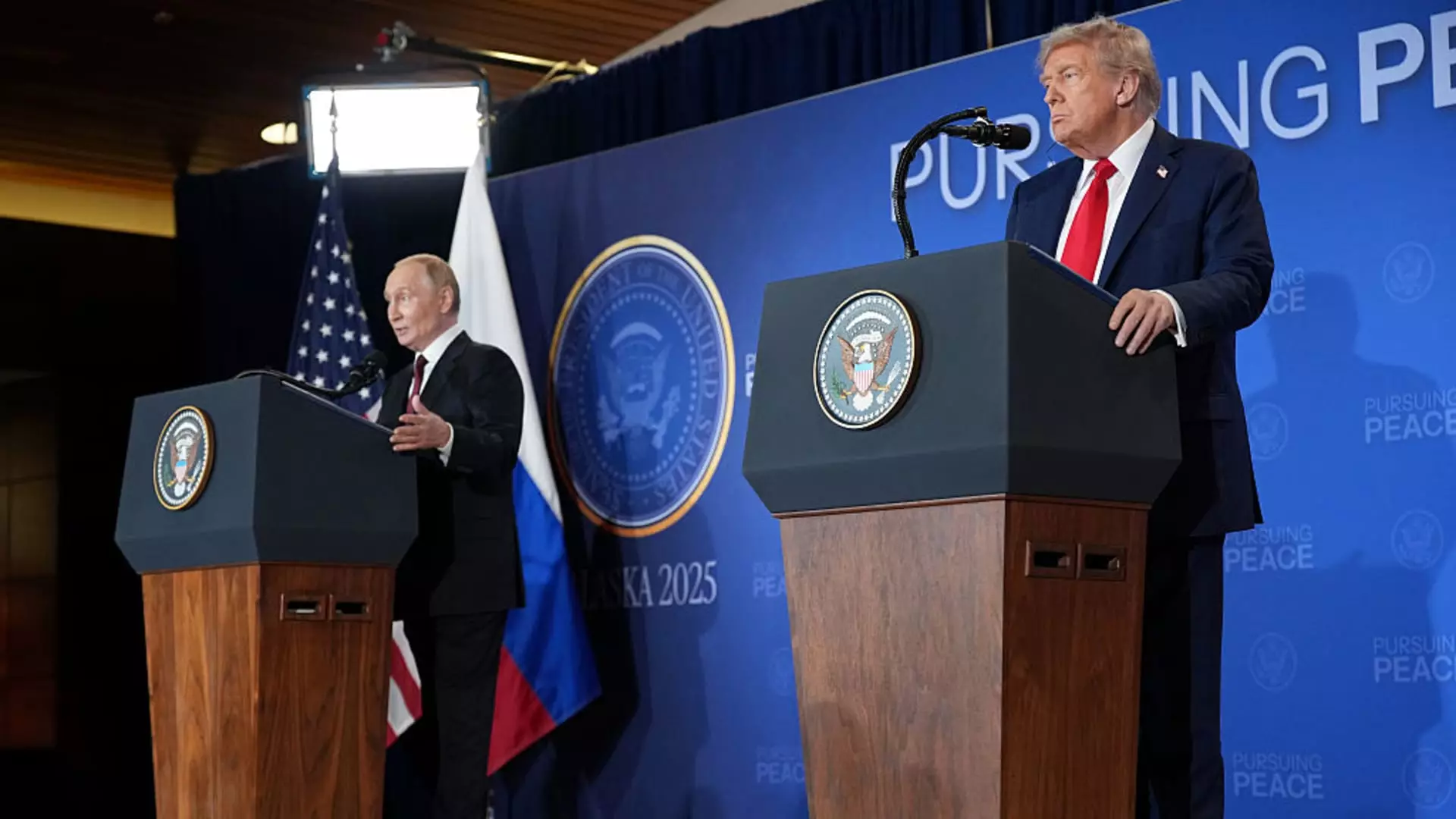In the aftermath of President Donald Trump’s recent meeting with Vladimir Putin, the rhetoric surrounding diplomacy and peace has reached a disturbing new low. Trump’s bold claim that a comprehensive peace agreement is the ultimate goal dangerously obscures the realities on the ground in Ukraine. While leaders may tout words of diplomacy, the underlying narrative suggests a troubling willingness to accept Russia’s terms without holding Moscow accountable for its aggression. This approach risks legitimizing unwarranted concessions that could embolden Putin while ignoring the suffering endured by Ukrainians. True peace cannot be brokered on the premise of appeasement; it requires firm commitments that uphold sovereignty and human rights, not hollow promises of “talks” that are likely to be manipulated.
The Dangerous Distraction of Political Posturing
Trump’s comments and subsequent plans to meet with Zelenskyy and Putin seem to prioritize optics over substantive solutions. Instead of pressuring Russia into meaningful concessions, his focus appears rooted in achieving “peace” at any cost, even if it means sidelining Ukraine’s legitimate security concerns. European allies have voiced concern over the absence of Ukrainian leadership in these negotiations, emphasizing that Kyiv’s voice must be central to any resolution. The peril here is that political figures, even within the liberal center, must recognize that such elite-driven negotiations risk marginalizing the very people most affected by this conflict. Distraction with diplomatic grandstanding diminishes the urgency of developing a strategy that truly supports Ukraine’s independence and deters future Russian aggression.
The Flawed Logic of Conceding to Authoritarian Power
The statements from Russian officials, claiming the summit signifies a step closer to a “new security architecture,” reveal a dangerous hubris. They suggest that Moscow aims to rewrite the rules of post-Cold War security, consolidating influence under the guise of negotiation. For Western and center-left liberals committed to democracy and international law, this is a stark warning. Conceding to Putin’s narrative only grants legitimacy to an authoritarian regime that thrives on power denial and territorial conquest. True diplomacy must involve clear red lines—affirming Ukraine’s sovereignty, holding Russia accountable, and resisting the temptation to prematurely normalize Moscow’s behaviors. Equivocating on these issues empowers autocratic regimes at the expense of liberal values and human rights.
Shattering the Illusion of Covert Progress
While Trump’s public assurances of diplomacy may seem promising to some, they often mask a reality of strategic complacency. The international community cannot afford to fall into the trap of believing that summit words equate to tangible change. Without a binding ceasefire, Russia retains the freedom to continue the war in Ukraine, risking the exacerbation of human suffering and regional instability. European leaders’ insistence on Ukrainian participation underscores an essential truth: peace must be rooted in justice, not mere negotiations. The West’s liberal values are best upheld by standing firm against reconciliation that rewards aggression, rather than capitulating to the false narrative that diplomacy alone can resolve such complex conflicts without accountability.
For liberals committed to justice and international stability, these talks highlight the importance of scrutinizing leadership decisions—not accepting empty promises at face value. Genuine peace is achievable only through unwavering support for Ukraine’s sovereignty and a refusal to legitimize authoritarian aggression. It is time to recognize that fleeting diplomatic gestures serve no one but those intent on reshaping geopolitics to their advantage, often at the expense of the innocent.


Leave a Reply